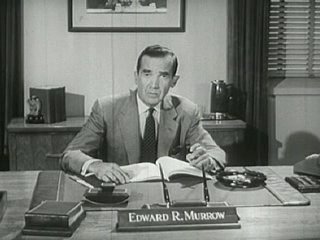americansecurityproject.org
The American Security Project defines public diplomacy as:
Communication and relationship building with foreign publics for the purpose of achieving a foreign policy objective.
Public diplomacy is a vital aspect of our national security strategy and must also inform the policy making process. Paraphrasing Edward R. Murrow, President Kennedy’s Director of the United States Information Agency (USIA), public diplomacy must be in on the take-offs of policy and not just the crash landings.
In the 20+ years since the end of the Cold War, the United States has yet to establish a defining role for public diplomacy in the context of its foreign relations.
Despite playing an important role in America’s Cold War victory, public diplomacy efforts and quality of content have since received neither the attention nor the craftsmanship they deserve. In 1999 the lead government body responsible for public diplomacy, USIA, was disbanded and its assets and responsibilities were subsequently folded into the Department of State. Since that time, public diplomacy has not yet found its rightful place.
In the aftermath of the September 11 attacks, policy makers and academics alike have wrestled with attempts to put American public diplomacy back on track — in order to better explain America to the world as well as to sway those who might support violence against our country or citizens. It’s time to fix this problem. Just as our military posture needs to reflect 21st Century realities and adversaries, so must our public diplomacy reflect modern mediums and audiences.
 American public diplomacy also has to acknowledge 21stCentury standards of communication, properly identify the target audience, and accurately and effectively convey the ideas and policies of the United States to foreign publics.
American public diplomacy also has to acknowledge 21stCentury standards of communication, properly identify the target audience, and accurately and effectively convey the ideas and policies of the United States to foreign publics.The past several years have demonstrated the desire for private citizens around the world to have their voices heard. Tapping the power of new-media, individuals and other non-state actors now have access to many of the same tools as governments, and are often more effective in getting their messages across. Yet the United States cannot merely rely on Twitter, Facebook, and other web-based mediums for communication as a substitute for the content of its strategic messages.
As an important aspect of effective strategic communication, America must also genuinely strive to listen to and understand foreign publics. This vital component in crafting messages which resonate with target audiences has often gone unheeded or been misunderstood.
ASP seeks to redefine the debate around public diplomacy, and refocus America’s efforts to establish itself as an effective 21st Century communicator.


No comments:
Post a Comment